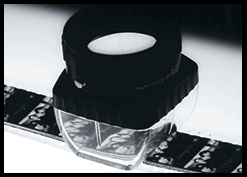GME Presents Films by 2021 Oscar Nominee Jay Rosenblatt on DVD and for DSL Download
/GME Streamline is excited to announce the release of two volumes of short films by internationally recognized artist Jay Rosenblatt, now available as standalone DVD editions as well as collections of DSL downloads, all available for our North American university clientele. Rosenblatt has been working as an independent filmmaker since 1980. His films have been shown worldwide, in film festivals, museum retrospectives, and on television, and have garnered many awards. His most recent movie, WHEN WE WERE BULLIES (2021), was nominated for an Academy Award.
“Jay Rosenblatt makes short, pointed, poetic films, and to see a collection of his work is to know he's a major artist. His specialness has no single source. He's a master at matching music and image, and the nature of his work, which usually involves discovering and using found footage, requires profound patience. Yet mostly, I suspect, what makes almost every Jay Rosenblatt film a full emotional experience is his empathy, his deep, unfeigned and unmistakable respect for life in its many forms.”
- Mick LaSalle, San Francisco Chronicle
Jay Rosenblatt is a master practitioner of the found footage genre of filmmaking. His movies acutely address the human condition – incorporating birth and childhood, the experience of personal, family and community space, religious faith and tyranny, mortality and death, the passage of time and the function of memory in evoking emotional recollections. Rosenblatt’s training and work in the mental health field helped him acutely understand the individual’s inner state of being. These moving image works are psychologically gripping, often bringing the spectator to the darker places of the human experience, including fear and anxiety, loss, grief, and mourning.
KING OF THE JEWS (2000, excerpt)
Unique among his found footage contemporaries, his collages comprising found footage material begin with a mood or a tone. “The point of departure for PHANTOM LIMB is the trauma, the death of my brother. I use that as a starting off point to discuss grief and loss. I didn’t know how I would do it but that’s what I wanted to do. HUMAN REMAINS, on the other hand, started by coming across an image that triggered something. I was looking for certain footage for my film KING OF THE JEWS, and came across footage of Hitler eating, I found this very disturbing because I saw him as a monster not human. This was the beginning of HUMAN REMAINS.”
In terms of his creative manipulation of the found footage, the filmmaker has noted “I find it fascinating when you know the original context and be able to completely re-contextualize it…Take the example of the scene of amputation in PHANTOM LIMB. My assistant was looking through reels of film in search of some footage, and we came across a clip labeled “Hot and Cold Treatments in Hospital Setting.” It may not have meant anything to us at the time – and we could have easily skipped it – but when we gave it a try, we found that amputation scene. The film would have been a completely different work without it.”
PHANTOM LIMB (2005,excerpt)
◊
Beginning his films with a personal experience, Rosenblatt builds his narratives so that by the end of each of his movies, he enlarges the field of vision to a commentary on the universal human condition. Rosenblatt’s mastery of image and sound montage reflects back from the screen so as to evoke emotional reactions in the viewer’s experience. These are exquisite, sensitive, poetic films.
Jay Rosenblatt


